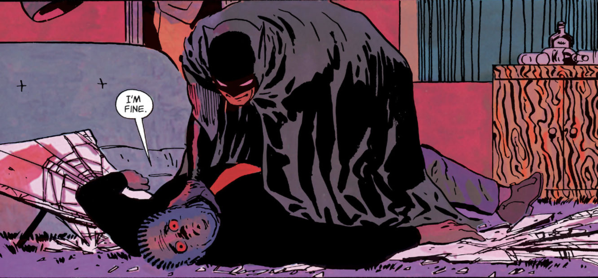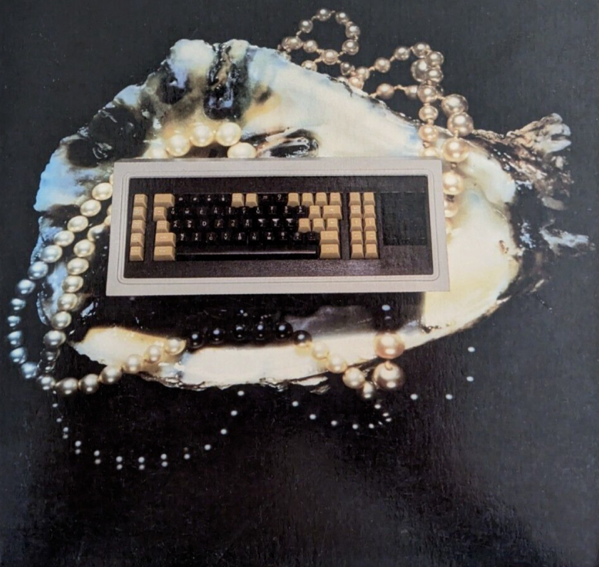speculative nonfiction
My sparse margin note couplet from Jon Bentley's Programming Pearls, also bit of a book review, and a whole ass


In 2015 I bought this book.
7, or 8 years ago.
Year one into my software career.
This book is canon.
I've had little use for its studies of algorithms. # thus far, see below
I don't think Bentley would be offended.
First sentence: "Computer programming has many faces."
I’m sure I glanced at its pages before entering the corporate interview gauntlet, to get in the vigilante mood. Like shaking out the shoulders when staring down a twenty two minute treadmill run (or pile of laundry Sunday evening). (You must to armor up for the algos in the kingdom of men.)
You know, Bentley’s pearls are usually the type of polished wisdom earned through real life experience I drift with, but this book never became the vade mecum for my quotidian affairs. Is it for others? Most of it, after Part I, was too metallic for an early-career front-end Rails dev. But the book can quickly be pragmatic in the earlier pages – see 3.2 Form-Letter Programming!. Templating is up there with the best of them.
The book is pedagogically caring (great headings). It’s pornographically geeked in thoroughness. The cases are so well-situated. Bentley spoils you with opinionated further reading and subjective sidebars that add the kind of first-hand-account historical/social context that remind you that the metal has been worked over by person hands.
It reminds you that software is not lonely.
Look out, there’s a modest amount of myth-making for his contemporaries and mentors. But who wouldn’t. The most honest plagiarisms. Yes/and he’s humbler than many. Ok maybe I have to read it again now that I have more years behind me.
Although I am a visual learner and thinker: logical word-problems were always a pain. In recent years I tend to reach for Bhargava’s Grokking Algorithms for a refresher on binary search or walking trees. It has cute pictures. It’s stacked next to other faves like Land of Lisp and Why’s (Poignant) Guide to Ruby.
Hmmm (thinking emoji, I will not look you in the eye as I cock my head buried in thots). After all the solstice konmari of my bookshelf – which I thought would elicit a reflection on some forgotten paper taking up space – has become the discovery of lost treasure. And yet, I’m still tickled by the scant amount of notes taken. I can’t read without a pen. Perhaps we’re time-traveling, then.
It's year one.
Young Rails dev.
He makes only two liner notes in a book considered staple grocery.
I don't remember if I even read the whole thing.
I bet I got through Part 1's wider lens, then started to gloss over.
One note is an exaggerated check mark next to this principle listed on p29 (Second Edition, published 2000):
Rework repeated code into arrays. A long stretch of similar code is often best expressed by the simplest of data structures, the array.
With “the array” also underlined from the outer left edge of the “t” to the outer right edge of the last “a.”
This one has stuck. Arrays, especially maps, can be more durable when staring down change. Before long any thoughtful software developer will realize that the components of a software system will become ordered and/or multiple.
There is no lonely software.
Data, whether as scalar, “bags” of properties, even subroutines and processes, even the manual lever pulling human tasks must be sequenced, serial, bound, reversed, indexed, sorted. The maintenance cost of housing data in ordered collections is generally low.
[<anything>, <anything>]
Whole ass languages, like Clojure, were designed to favor ordered, associative arrays. As I learned after finding Hickey’s seminal talk Simple Made Easy. (Richly simple and luxurious as Hockney’s bathers.)

A second mark: a vertical line next to the opener for section 12.2 One Solution. This was (yet another moment in my lifetime) I learned that we never have to go it alone when staring down the void of what we’re building next:
As soon as we settled on the problem to be solved, I ran to my nearest copy of Knuth’s Seminumerical Algorithms (having copies of Knuth’s three volumes both at home and at work has been well worth the investment).
This has also stuck, reified after seasons.
Friday December 22, 2023